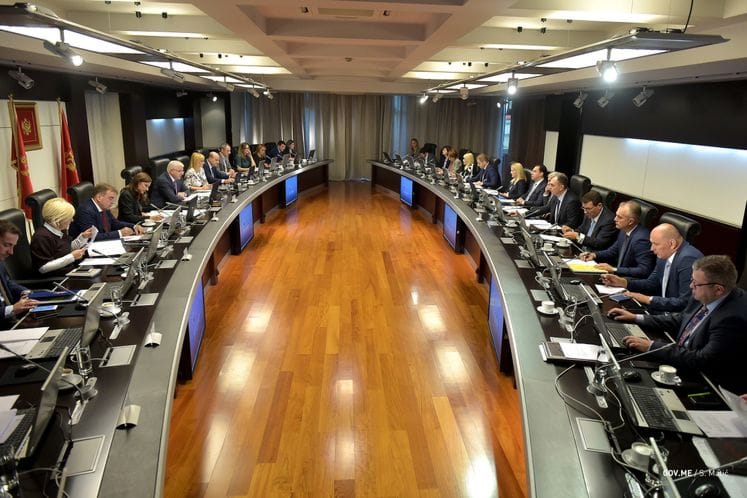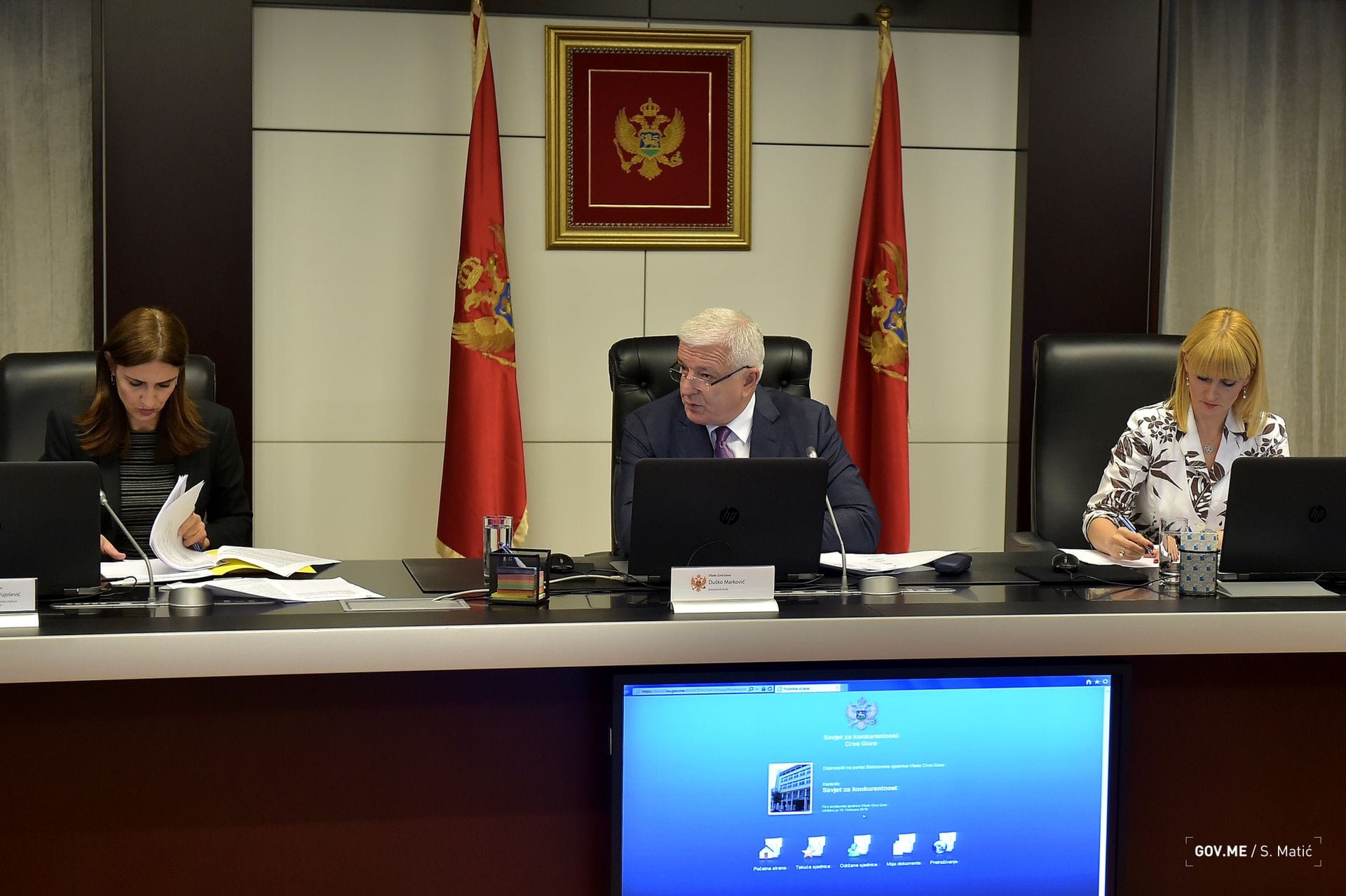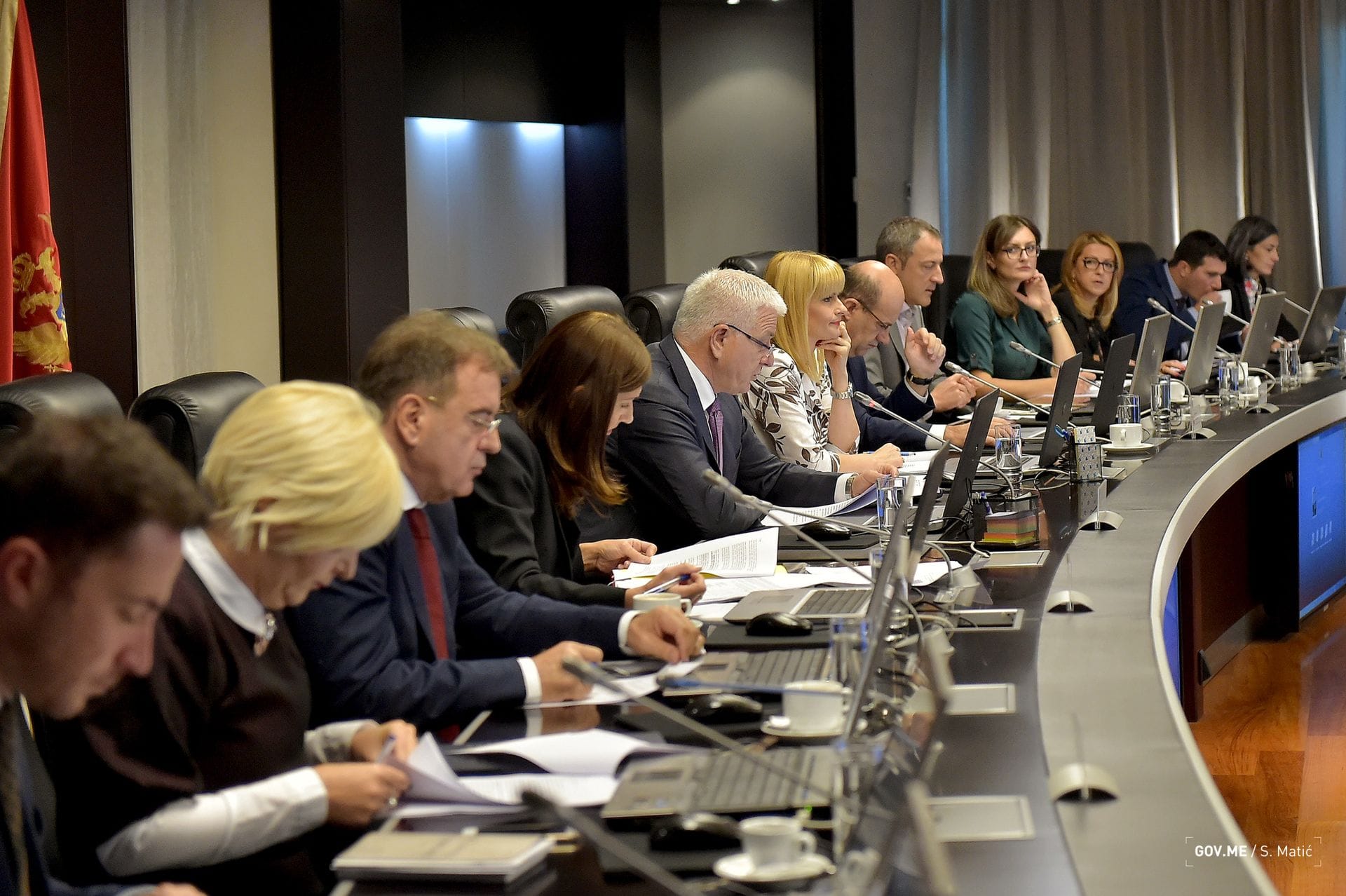- Government of Montenegro
Inaugural session of Competitiveness Council
Inaugural session of Competitiveness Council



Podgorica,
Montenegro (11 October 2017) -- Inaugural session of the Competitiveness
Council, chaired by the President of the Council, Prime Minister Duško Marković, was held earlier today
in Podgorica.
Speaking
about the first item on the agenda – Establishment
of the Competitiveness Council, its goals and further activities, Prime
Minister Marković said that the Council is facing a challenging period and ambitious
tasks with the aim of raising the level of the Montenegrin economy and
improving administrative and other capacities in order to make the business
environment incentive for foreign and domestic investors, which will lead to an
increase in the standard of citizens and the creation of new jobs. In this
context, the Prime Minister said that we are witnessing an increased interest
of renowned investors, especially after Montenegro's accession to NATO, and
pointed out that the Council should play a leading role in raising the
willingness of the State to respond to investors' demands and expectations.
The
Council considered and adopted the Report on the Implementation of the Economic Reform Programme (ERP) for
Montenegro for the period 2017-2019 in the first six months of 2017. The
Report showed that the results of the Government's economic policy in the first
half of the year are better than the projections in the ERP for 2017, as
follows: Economic growth for 2017 – ERP projection 3,2%, the Fiscal Strategy projection 2,7%; 4,2% achieved in the first half of year, which is among the highest in
Europe. Also, better than projected results were achieved in the growth of
wages and employment, as well as in the original public revenues (EUR 58.2
million or 8,2% more than the comparative period in 2016, EUR 7.5 million or
1,0% more than planned). The expectation
is that the real growth of the economy will be achieved by the end of 2017,
achieved in the first half of the year. Regarding the implementation of the
priority reform measures contained in the ERP, aimed at improving the
competitiveness of the economy, it was noted that the implementation of the
measures contained in the document is conducted in accordance with the dynamics
provided in the ERP for 2017.
The
Council considered and adopted the Report
of the World Economic Forum on the Global Competitiveness Index and the
achieved position of Montenegro, in which our country improved its position
by five places and it was ranked 77th. This was contributed by the improvement
of the position by individual sub-indicators: institutions, infrastructure,
macroeconomic stability, higher education, the efficiency of the commodity market
and the labor market, financial market, technological readiness, sophistication
of business, innovation.
The
Council reviewed and adopted the Information
on the assessment of Montenegro's credit rating by the rating agency Moody's,
by which Montenegro's credit rating is kept at B1 level, while the long-term prospects
changed from negative to stable. The
above assessment is based on estimates that Government fiscal consolidation
measures will stabilise the general fiscal position of the country; that large
investment projects in the transport, tourism and energy sectors improve the
prospect of medium-term growth in Montenegro; that progress in the EU accession
negotiations, as well as Montenegro's membership in NATO, will contribute to strengthening
institutions and improving the country's investment climate.
The President
of the Council said he expects economic indicators for the third quarter of
2017 to be also very good and to contribute to the continuation of the current
trend of economic growth and employment in 2017. At the same time, he stressed
the Government's strong commitment to continuing the implementation of reform
measures aimed at increasing the efficiency of the state administration, as
well as overall structural reforms in the country.
PUBLIC RELATIONS SERVICE OF THE
GOVERNMENT OF MONTENEGRO
